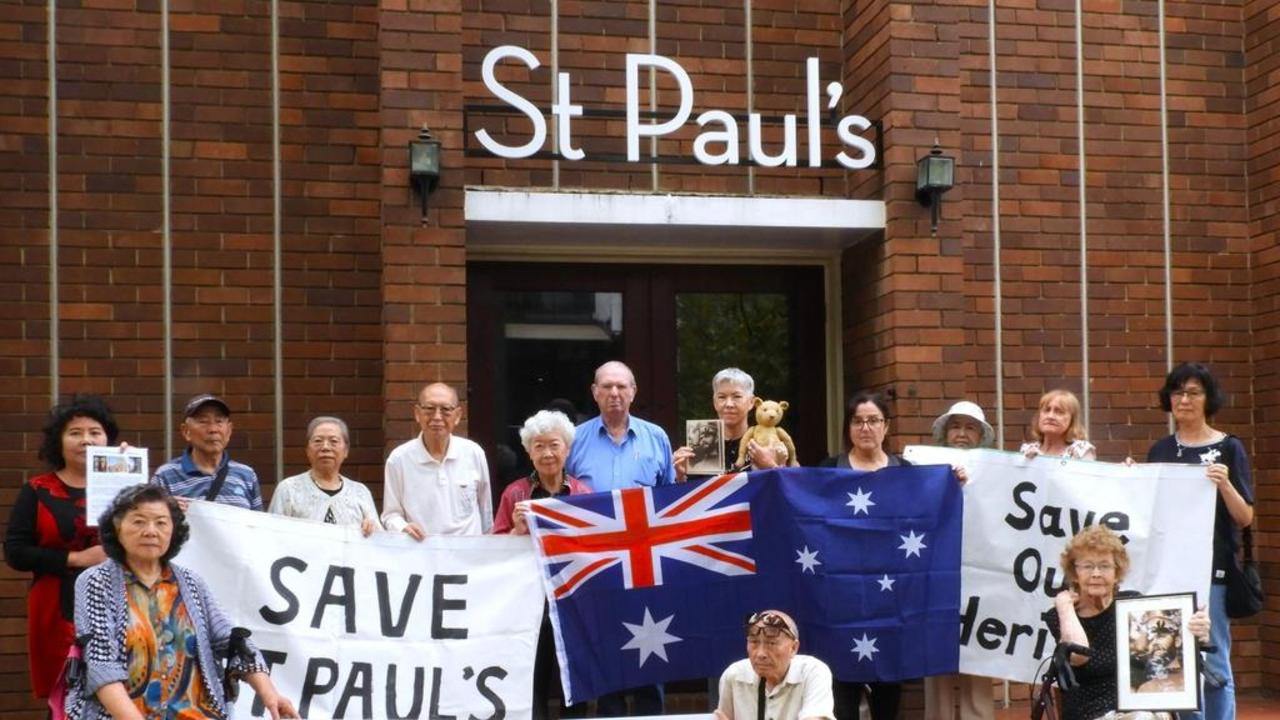Refugees protest outside Immigration Minister Tony Burke’s office, demanding permanent residency solution after years ‘in limbo’
Refugees have shared their stories of living “in limbo” as they marked 50 days camping outside the Immigration Minister’s southwest Sydney office in search of permanent protection.
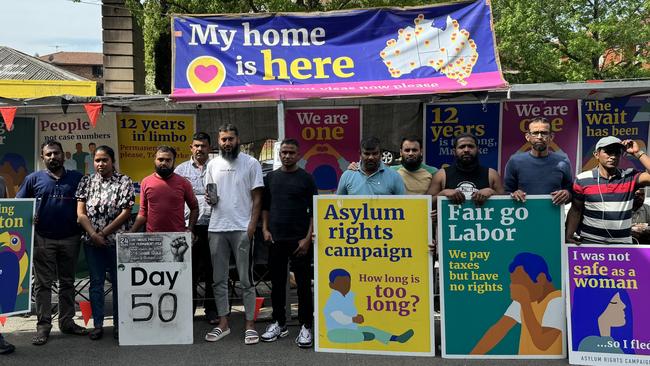
The Express
Don't miss out on the headlines from The Express. Followed categories will be added to My News.
Twelve years after fleeing persecution in his home country of Bangladesh, Farid Ahmed still dreams about the five-year-old daughter he left behind.
“I left (because) of my country’s civil war. I came to Australia for safety,” the 38-year-old said on Tuesday.
“I have a family, I left my little daughter.”
Mr Ahmed arrived in Australia in 2013, seeking asylum in the hope he could also bring his wife and daughter to safety.
But more than a decade later, he is among roughly 10,000 refugees who have been left “in limbo” after the federal government abolished the controversial “fast track” system.
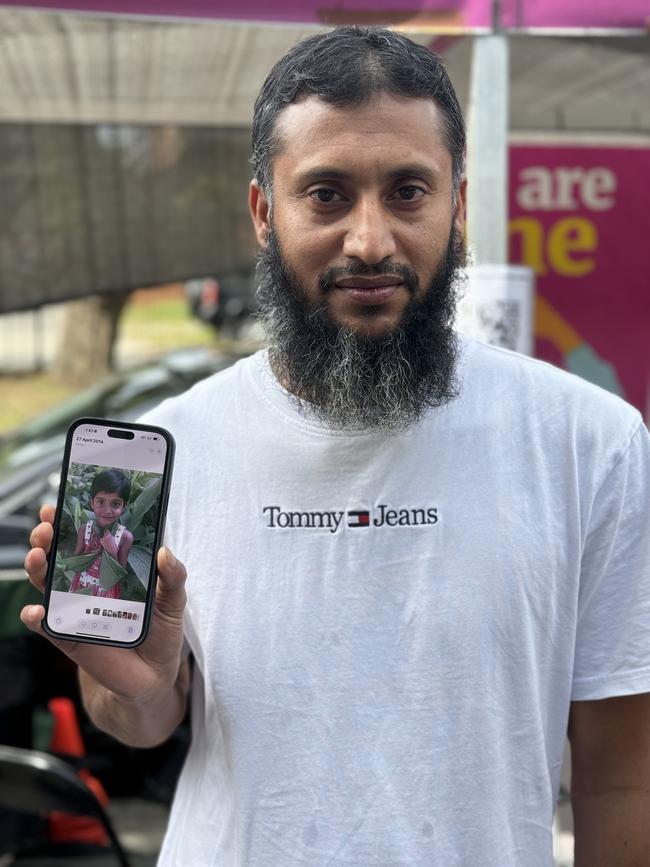
Mr Ahmed said his visa application had been rejected twice under the system.
In 2019, he lodged an appeal which is still before the courts five years later.
“I am suffering a lot,” he said.
“I miss my family. I miss my daughter.
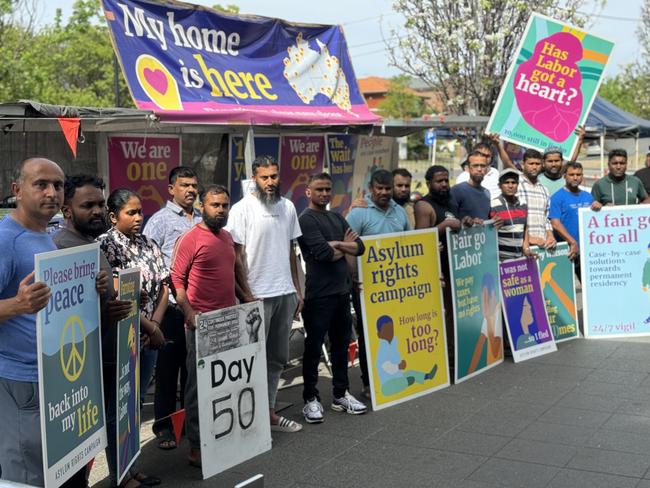
“Many nights, I cry to myself because it is so painful – a broken family.”
Last year, about 19,000 refugees residing in Australia on temporary protection visas and safe haven enterprise visas became eligible to apply for a permanent resolution of status visa.
But refugees like Mr Ahmed, who arrived by boat after August 13, 2012, and were rejected under the “fast track” system, are ineligible, leaving many on bridging visas or no visa at all.
For the past 50 days, refugees and advocates have camped outside Immigration and Home Affairs Minister Tony Burke’s Punchbowl office, demanding similar permanent protections for the remaining 10,000 refugees left “in limbo”.
Mohammad Shofikul Islam also fled Bangladesh almost 12 years ago after receiving numerous death threats.
For him, the decision to flee by boat was a “life and death situation”.
“I am lucky. God saved me to be here, speaking to you. It was a horrible situation on the boat,” Mr Islam said.
Despite there being no visa relief in sight, Mr Islam said he had been a contributing member of society while living in Punchbowl for the past decade.
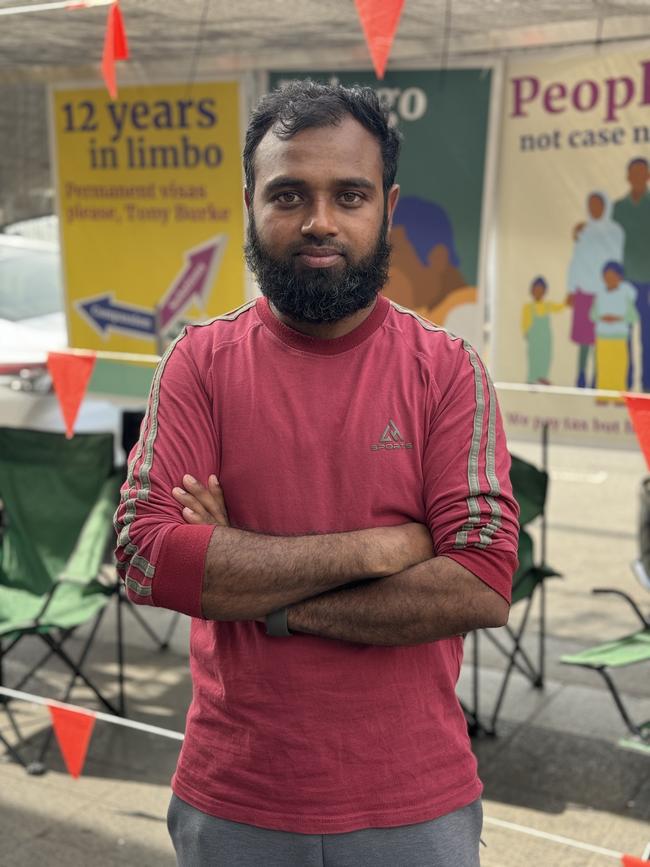
“For more than eight years, I have been working in the building and construction industry. I am working hard, I pay tax and I do a lot of community work and fundraising,” he added.
“I love to help other people, but because of the visa situation I am stuck right now.
“But I’ve been living in limbo for 12 years without a visa. I feel less than human.”
Mr Islam said the previous “fast track” system had “destroyed” not just his life, but the lives of 10,000 refugees who now found themselves ineligible for permanent solutions.
“For 50 days, we’ve been standing outside (Mr Burke’s) office. They have to realise, we have our own lives, our own families. We are only hoping to live in this country. It is our dream,” he said.
“But nothing is happening here.”
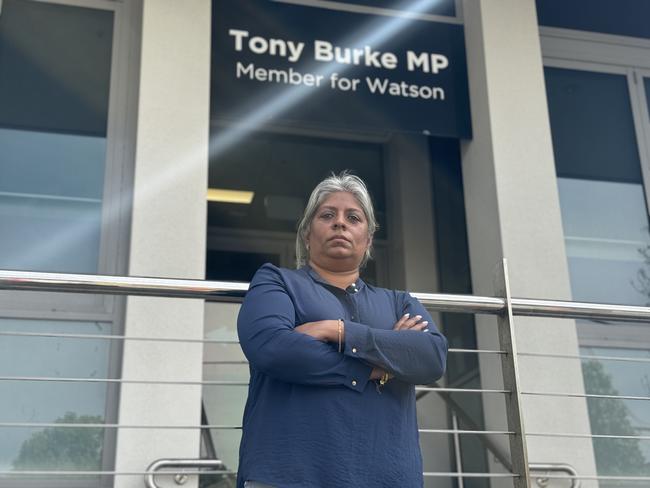
Kalyani Inpakumar, the NSW coordinator for the Tamil Refugee Council, said the encampment outside Mr Burke’s office was one of many organised by refugees in major cities across the country.
On Sunday, more than 1000 people marched in the heart of Punchbowl outside Mr Burke’s office, demanding permanent protections for refugees left in the lurch by the “fast track” system.
“The Labor government themselves said it was a flawed system,” Ms Inpakumar said.
“This shows the desperation of the refugees and they need to be heard. It’s been 14 years for a lot of them.”
Ms Inpakumar said refugees living on bridging visas or with no visa status received none of the benefits of living in Australia – like subsidised tertiary education and Medicare – despite being taxpayers.
“They’re good citizens and they haven’t done anything wrong,” she added.
Ms Inpakumar said at one point during the protests, Mr Burke had invited a few refugees into his office.
“He listened to all the refugees’ concerns,” she said.
“We had a good one hour meeting.”
Mr Burke did not respond to this masthead’s requests for comment.



